News - Homilies RSS Feed
-
- All News
-
-
-
- 33 Days (35)
- 5K Run-Walk (1)
- Adoration (4)
- Advent & Christmas (22)
- Audio Visual Ministry (1)
- Becoming Catholic - OCIA (5)
- Bible Study (1)
- Comunidad Hispana (1)
- Cộng Đoàn VIETNAM (116)
- DDF (12)
- Eucharistic Revival (7)
- Festival Raffle (4)
- Filipino Catholics (5)
- Flocknote (1)
- Food & Clothing Ministry (14)
- FORMED (136)
- Fr. Joseph's Homilies (2)
- Golf Dinner (1)
- Golf Registration (1)
- Golf Sponsor (1)
- Harvest Festival (1)
- HOME (807)
- Homilies (173)
- Ignite (1)
- Jobs and Volunteering (6)
- Knights of Columbus (2)
- Knot Just a Prayer (2)
- Lent & Holy Week (53)
- Live Entertainment (1)
- Mass Intentions (1)
- Mass Times (600)
- Mass | Liturgy (1)
- Men's Fellowship (1)
- MINISTRY CENTER (2)
- Movie Night (2)
- Music Ministry (4)
- ONLINE 5K Registration CLOSED (Register In-person) (1)
- Parish Survey 2015 (1)
- Pastoral Council (2)
- PRESCHOOL (3)
- Reconciliation (Confession) (1)
- Respect Life & Family (12)
- Rosary Group (1)
- Scouts (1)
- Silent Auction (1)
- Social Justice (3)
- Spanish Mass (1)
- SPARK Jr. High Ministry (1)
- Sponsorship (2)
- Vocations Committee (1)
- Watch (166)
- Young Adults (2)
- Youth (22)
- Youth Ministry (18)
-
-
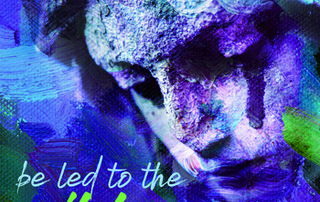 February 21, 2026Today is the First Sunday of Lent which is an invitation to step into the wilderness following the journey of Jesus who was led by the Holy Spirit into the desert for forty days, — days in which we are challenged to go about transformation, reparation and renewal of life.Read More
February 21, 2026Today is the First Sunday of Lent which is an invitation to step into the wilderness following the journey of Jesus who was led by the Holy Spirit into the desert for forty days, — days in which we are challenged to go about transformation, reparation and renewal of life.Read More -
 February 14, 2026What is the difference between simply "following the rules" and truly following Christ? In this week's reflection on the Sermon on the Mount, we explore Jesus' radical call to move beyond outward appearances and embrace a total transformation of the heart. From healing broken relationships to living with radical integrity, discover the four keys to a righteousness that truly honors God. Read more to discover how these ancient teachings challenge us to live differently today.Read More
February 14, 2026What is the difference between simply "following the rules" and truly following Christ? In this week's reflection on the Sermon on the Mount, we explore Jesus' radical call to move beyond outward appearances and embrace a total transformation of the heart. From healing broken relationships to living with radical integrity, discover the four keys to a righteousness that truly honors God. Read more to discover how these ancient teachings challenge us to live differently today.Read More -
 January 30, 2026The Beatitudes in our Gospel today from Matthew invites to step into one of the most profound teachings Jesus ever offered, always challenging us in our faith life journey. The Beatitudes serve as an introduction to His Sermon on the Mount speaking directly to our hearts that yearn for meaning, hope, and a deeper relationship with God.Read More
January 30, 2026The Beatitudes in our Gospel today from Matthew invites to step into one of the most profound teachings Jesus ever offered, always challenging us in our faith life journey. The Beatitudes serve as an introduction to His Sermon on the Mount speaking directly to our hearts that yearn for meaning, hope, and a deeper relationship with God.Read More -
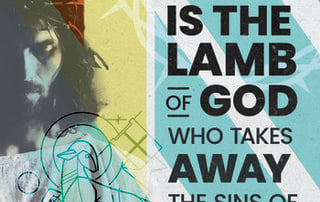 January 17, 2026The season of Ordinary Time is a period for deeper reflection on Jesus as the "Word made Flesh" and Emmanuel, guiding believers towards growth in faith through Jesus's teaching and healing ministry [nan]. This period highlights the universality of God's plan of salvation, fulfilled by Jesus as the sacrificial Lamb on the cross, calling believers to be witnesses of God's transformative love [nan]. For the full reflection, click to continue...Read More
January 17, 2026The season of Ordinary Time is a period for deeper reflection on Jesus as the "Word made Flesh" and Emmanuel, guiding believers towards growth in faith through Jesus's teaching and healing ministry [nan]. This period highlights the universality of God's plan of salvation, fulfilled by Jesus as the sacrificial Lamb on the cross, calling believers to be witnesses of God's transformative love [nan]. For the full reflection, click to continue...Read More -
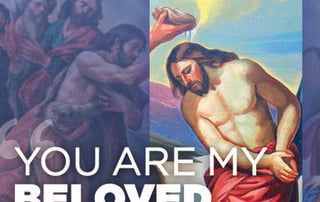 January 9, 2026The spiritual significance of remembering and celebrating one's baptism date as a personal rebirth, a practice advocated by Pope Francis. It connects personal reflection to the Feast of the Baptism of the Lord, emphasizing Jesus' humble baptism as an act of solidarity with humanity that opens the way to salvation. Baptism is portrayed as a public affirmation of faith, a commitment to God's path, and recognition of one's identity as a beloved child of God, equipped by the Holy Spirit to live a holy life and act as a beacon of hope. For more information, please read the full reflection.Read More
January 9, 2026The spiritual significance of remembering and celebrating one's baptism date as a personal rebirth, a practice advocated by Pope Francis. It connects personal reflection to the Feast of the Baptism of the Lord, emphasizing Jesus' humble baptism as an act of solidarity with humanity that opens the way to salvation. Baptism is portrayed as a public affirmation of faith, a commitment to God's path, and recognition of one's identity as a beloved child of God, equipped by the Holy Spirit to live a holy life and act as a beacon of hope. For more information, please read the full reflection.Read More -
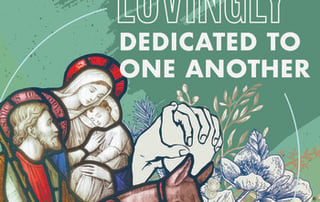 December 27, 2025Young people are in need of a "concrete and clear way" to help them understand and dig more deeply the richness of our faith. Parents are in need of support in "creating the right conditions for their children to encounter Jesus." Pope Leo reminds us that the Church's hierarchy, alongside the laity, should cast their nets into the sea and become fishers of families—couples, young people, children, women, and men of all ages and circumstances—in order to have an encounter with Jesus.Read More
December 27, 2025Young people are in need of a "concrete and clear way" to help them understand and dig more deeply the richness of our faith. Parents are in need of support in "creating the right conditions for their children to encounter Jesus." Pope Leo reminds us that the Church's hierarchy, alongside the laity, should cast their nets into the sea and become fishers of families—couples, young people, children, women, and men of all ages and circumstances—in order to have an encounter with Jesus.Read More -
 December 20, 2025We are now getting closer to the celebration of Jesus’ birth; we have lighted the fourth candle of Advent which is a reminder of that great genuine love, - the birth of Jesus as a manifestation of God’s love to the world, the fulfillment of his promise of salvation.Read More
December 20, 2025We are now getting closer to the celebration of Jesus’ birth; we have lighted the fourth candle of Advent which is a reminder of that great genuine love, - the birth of Jesus as a manifestation of God’s love to the world, the fulfillment of his promise of salvation.Read More -
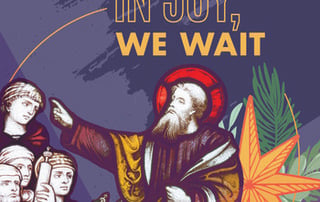 December 13, 2025Each of us is challenged to be greater than a prophet, than the precursor, John the Baptist in responding and getting involve with our mission to share Jesus to others. We have received him and continue to dwell in us as we become the source of joy to others. In mass, we receive him in the Word proclaimed and in the humble bread and wine turning to his body and blood and has become the temple of the Holy Spirit. Let us point others to him and bring him to others, let us be the source of joy, let us be the source of rejoicing!Read More
December 13, 2025Each of us is challenged to be greater than a prophet, than the precursor, John the Baptist in responding and getting involve with our mission to share Jesus to others. We have received him and continue to dwell in us as we become the source of joy to others. In mass, we receive him in the Word proclaimed and in the humble bread and wine turning to his body and blood and has become the temple of the Holy Spirit. Let us point others to him and bring him to others, let us be the source of joy, let us be the source of rejoicing!Read More -
 November 22, 2025This is ultimately asking the reign of God be in our life. Whenever we pray the Lordís prayer, we utter those powerful words, "Thy kingdom come." It is to seek to enter God ís kingdom, paying Christ true homage not humiliation, trying to live by his examples to make of our life a true offering out of love for God and others, and so to let him reign in our hearts as King forever. "Viva Cristo Rey!î ó ìLong live Christ the King!"Read More
November 22, 2025This is ultimately asking the reign of God be in our life. Whenever we pray the Lordís prayer, we utter those powerful words, "Thy kingdom come." It is to seek to enter God ís kingdom, paying Christ true homage not humiliation, trying to live by his examples to make of our life a true offering out of love for God and others, and so to let him reign in our hearts as King forever. "Viva Cristo Rey!î ó ìLong live Christ the King!"Read More -
 November 1, 2025We start the month of November by celebrating the lives of all the Saints, - canonized or uncanonized, -those through their holiness of life share in the heavenly banquet of God on November 1st. We donít worship them, we donít praise them as much as we praise the glory of God, we donít treat them and their images as idols but we look at their examples, we try to imitate their holiness of life and sacrificial love, and we venerate them, invoking their intercession as we continue our faith journey here on earth.Read More
November 1, 2025We start the month of November by celebrating the lives of all the Saints, - canonized or uncanonized, -those through their holiness of life share in the heavenly banquet of God on November 1st. We donít worship them, we donít praise them as much as we praise the glory of God, we donít treat them and their images as idols but we look at their examples, we try to imitate their holiness of life and sacrificial love, and we venerate them, invoking their intercession as we continue our faith journey here on earth.Read More -
 October 25, 2025For many of us, we would think of the many good things we have done, - how many times we offered prayers for the souls in purgatory, how many times we attended mass, offered donations for the Church, served in charitable works and the list would go on and on. These good deeds that we can think of could justify our entry into Godís Kingdom. The more good works, the more chances of getting into heaven.Read More
October 25, 2025For many of us, we would think of the many good things we have done, - how many times we offered prayers for the souls in purgatory, how many times we attended mass, offered donations for the Church, served in charitable works and the list would go on and on. These good deeds that we can think of could justify our entry into Godís Kingdom. The more good works, the more chances of getting into heaven.Read More -
 October 11, 2025“May the God of hope fill you with joy and peace in believing.” (Romans 15:13) Our 36th Annual Harvest Festival has just concluded and it was a joy-filled experience indeed! According to our volunteers at the entrance gate, they have recorded more than 18,000 individuals who came and joined us for the whole weekend. Once again, we have proven that no matter how many hurdles may seem to distract our focus on what we do, if we continue to believe and hope in God, everything will turn out well, perhaps, it may not be the way we want but the way God sees best fits for us.Read More
October 11, 2025“May the God of hope fill you with joy and peace in believing.” (Romans 15:13) Our 36th Annual Harvest Festival has just concluded and it was a joy-filled experience indeed! According to our volunteers at the entrance gate, they have recorded more than 18,000 individuals who came and joined us for the whole weekend. Once again, we have proven that no matter how many hurdles may seem to distract our focus on what we do, if we continue to believe and hope in God, everything will turn out well, perhaps, it may not be the way we want but the way God sees best fits for us.Read More -
 September 13, 2025The devotion to Our Lady of La Salette calls humanity to conversion and hope emphasizing that being reconciled with God means embracing repentance, penance and zeal. The emphasis on reconciliation is the central theme of devotion to our Lady of La Salette, - reconciliation with God and others. The message of La Salette has also inspired numerous Catholic holy saints that includes St. John Marie Vianney and St. John Bosco.Read More
September 13, 2025The devotion to Our Lady of La Salette calls humanity to conversion and hope emphasizing that being reconciled with God means embracing repentance, penance and zeal. The emphasis on reconciliation is the central theme of devotion to our Lady of La Salette, - reconciliation with God and others. The message of La Salette has also inspired numerous Catholic holy saints that includes St. John Marie Vianney and St. John Bosco.Read More -
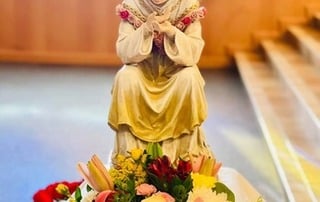 September 6, 2025The month of September is very significant to the Missionaries of Our Lady of La Salette, a religious community of priests and brothers to which I, Fr. Mahka, Fr. Joseph and Fr. Romeo belong, and some other priests assigned in other parishes within the Diocese of San Bernardino. This month we commemorate the apparition of our Blessed Mother Mary to two children near a small hamlet called La Salette on the slopes of Mt. Planeau (alt. approximately 6,000 ft.) near the French Alps. The title Our Lady of La Salette came from that small village where the Blessed Mother Mary appeared.Read More
September 6, 2025The month of September is very significant to the Missionaries of Our Lady of La Salette, a religious community of priests and brothers to which I, Fr. Mahka, Fr. Joseph and Fr. Romeo belong, and some other priests assigned in other parishes within the Diocese of San Bernardino. This month we commemorate the apparition of our Blessed Mother Mary to two children near a small hamlet called La Salette on the slopes of Mt. Planeau (alt. approximately 6,000 ft.) near the French Alps. The title Our Lady of La Salette came from that small village where the Blessed Mother Mary appeared.Read More -
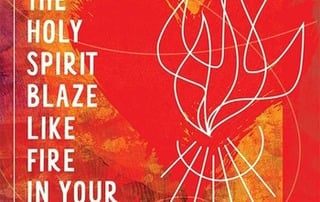 August 16, 2025Fire carried a lot of symbolism in the Scriptures but whether it was presented in a negative or positive way, one thing is for sure, fire always leads to change!Read More
August 16, 2025Fire carried a lot of symbolism in the Scriptures but whether it was presented in a negative or positive way, one thing is for sure, fire always leads to change!Read More -
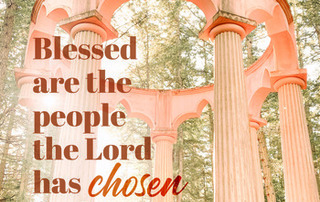 August 9, 2025Jesus assures us in our Gospel, “Do not be afraid any longer, little flock, for your Father is pleased to give you the kingdom!” If God is pleased to give us the kingdom, what then is our response? It is our willingness to light that fire of hope in our hearts. True happiness lies on our willingness and fearless search for God. Exert effort to search for that genuine happiness and be satisfied with what God can offer us who is knocking gently in our hearts, wanting to have an intimate encounter with us. This is the real treasure that can satisfy our heart’s desires and longing, it is where our hearts rest in faith and trust knowing that Jesus says, “For where your treasure is, there also you’re your heart be.”Read More
August 9, 2025Jesus assures us in our Gospel, “Do not be afraid any longer, little flock, for your Father is pleased to give you the kingdom!” If God is pleased to give us the kingdom, what then is our response? It is our willingness to light that fire of hope in our hearts. True happiness lies on our willingness and fearless search for God. Exert effort to search for that genuine happiness and be satisfied with what God can offer us who is knocking gently in our hearts, wanting to have an intimate encounter with us. This is the real treasure that can satisfy our heart’s desires and longing, it is where our hearts rest in faith and trust knowing that Jesus says, “For where your treasure is, there also you’re your heart be.”Read More -
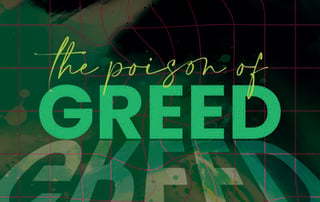 August 2, 2025Greed cuts off our relationship with other people and definitely, with God. Greed isolates us from being motivated in following and living up the two great commandments, love of God and love of neighbor. And so Jesus has warned us, “Take care to guard against all greed, for though one may be rich, one’s life does not consist of possessions.” (Luke 12:15) Our desire of having more than what we have, more than what we can get, more than what is rightfully ours is greed that forces us to be inaccessible into the ‘sinkhole’ of foolishness.Read More
August 2, 2025Greed cuts off our relationship with other people and definitely, with God. Greed isolates us from being motivated in following and living up the two great commandments, love of God and love of neighbor. And so Jesus has warned us, “Take care to guard against all greed, for though one may be rich, one’s life does not consist of possessions.” (Luke 12:15) Our desire of having more than what we have, more than what we can get, more than what is rightfully ours is greed that forces us to be inaccessible into the ‘sinkhole’ of foolishness.Read More -
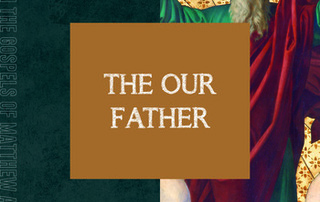 July 25, 2025There is no doubt that the Lord’s Prayer has revealed so much of our special relationship with God as our Father. As we pray it deeply, allow it to cover every aspect of our lives. Whenever we pray it, allow it to mold us once again as the Father’s beloved sons and daughters.Read More
July 25, 2025There is no doubt that the Lord’s Prayer has revealed so much of our special relationship with God as our Father. As we pray it deeply, allow it to cover every aspect of our lives. Whenever we pray it, allow it to mold us once again as the Father’s beloved sons and daughters.Read More -
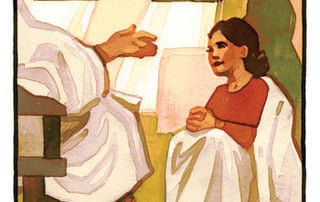 July 19, 2025Throughout our lives, we are constantly faced with multiple choices, from basic decisions to life-changing ones. There are choices we have to make instantly and choices that require us to have more time to think about. The power of our choice can have an impact on our future. Making the right choice is crucial in our life as it may determine the kind of life we have to live and what kind of path we must take.Read More
July 19, 2025Throughout our lives, we are constantly faced with multiple choices, from basic decisions to life-changing ones. There are choices we have to make instantly and choices that require us to have more time to think about. The power of our choice can have an impact on our future. Making the right choice is crucial in our life as it may determine the kind of life we have to live and what kind of path we must take.Read More -
 July 4, 2025As a Church being sent by Jesus, we become vulnerable to many things as we step out from our comfort zones to reach out to people in need. In our task of building bridges and dialogue, we become susceptible to ways and situations which we may consider to be uncomfortable with but it is when we are vulnerable that God can truly work in us and through us. Fulfilling this mission entrusted to us is a fulfillment of our love and service to God.Read More
See More
July 4, 2025As a Church being sent by Jesus, we become vulnerable to many things as we step out from our comfort zones to reach out to people in need. In our task of building bridges and dialogue, we become susceptible to ways and situations which we may consider to be uncomfortable with but it is when we are vulnerable that God can truly work in us and through us. Fulfilling this mission entrusted to us is a fulfillment of our love and service to God.Read More
See More
